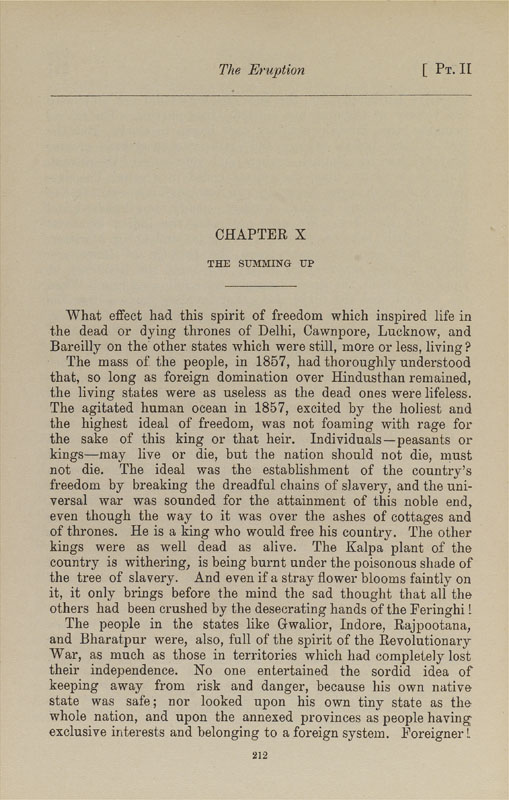The Eruption
[ Pt. II
CHAPTER X
THE SUMMING UP
What effect had this spirit of freedom which inspired life in
the dead or dying thrones of Delhi, Cawnpore, Lucknow, and
Bareilly on the other states which were still, more or less, living ?
The mass of the people, in 1857, had thoroughly understood
that, so long as foreign domination over Hindusthan remained,
the living states were as useless as the dead ones were lifeless.
The agitated human ocean in 1857, excited by the holiest and
the highest ideal of freedom, was not foaming with rage for
the sake of this king or that heir. Individuals—peasants or
kings—may live or die, but the nation should not die, must
not die. The ideal was the establishment of the country's
freedom by breaking the dreadful chains of slavery, and the uni¬
versal war was sounded for the attainment of this noble end,
even though the way to it was over the ashes of cottages and
of thrones. He is a king who would free his country. The other
kings were as well dead as alive. The Kalpa plant of the
country is withering^ is being burnt under the poisonous shade of
the tree of slavery. And even if a stray fiower blooms faintly on
it, it only brings before the mind the sad thought that all the
others had been crushed by the desecrating hands of the Feringhi!
The people in the states like Gwalior, Indore, Rajpootana,
and Bharatpur were, also, full of the spirit of the Revolutionary
War, as much as those in territories which had completely lost
their independence. No one entertained the sordid idea of
keeping away from risk and danger, because his own native
state was safe; nor looked upon his own tiny state as the
whole nation, and upon the annexed provinces as people having
exclusive interests and belonging to a foreign system. Foreigner!
212
|








